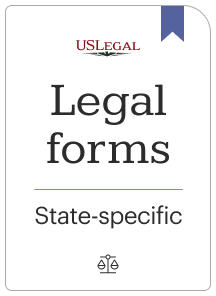

This form is a sample letter in Word format covering the subject matter of the title of the form. A letter of support for Medicaid is a formal document that is written to advocate for an individual's eligibility or need for Medicaid benefits. It serves as a supporting statement that provides additional information about the individual's medical condition, financial situation, and any other relevant details that can strengthen their application for Medicaid assistance. Keywords: letter of support, Medicaid benefits, eligibility, medical condition, financial situation, application, assistance. There can be different types of letters of support for Medicaid that may vary depending on the purpose and the person writing the letter. Some examples of these letters are: 1. Medical Provider's Letter of Support for Medicaid: This type of letter is written by a healthcare professional, such as a doctor, nurse, or therapist, who has direct knowledge of the individual's medical condition. It includes detailed information about the individual's diagnosis, treatment plan, and the necessity of Medicaid coverage to ensure proper medical care and ongoing treatment. 2. Financial Support Letter for Medicaid: Often written by a family member, friend, or caregiver, this type of letter focuses on providing details regarding the individual's financial situation and their inability to afford necessary medical care without Medicaid assistance. It may highlight the individual's limited income, high medical expenses, or lack of insurance coverage, emphasizing the critical need for Medicaid support in meeting their healthcare needs. 3. Disability Advocacy Letter of Support for Medicaid: Typically composed by a disability advocate, this letter addresses the specific challenges faced by individuals with disabilities. It highlights the extra costs associated with disability-related healthcare, supportive services, and equipment, making a strong case for Medicaid coverage to ensure access to essential resources that enable independence and improved quality of life. 4. Legal Support Letter for Medicaid: An attorney or advocate may draft this letter to support individuals who may be facing legal barriers in accessing Medicaid benefits. It may outline legal arguments, cite relevant laws and regulations, and provide evidence to demonstrate the necessity of Medicaid coverage for the individual's particular circumstances. Each type of letter of support for Medicaid plays a crucial role in presenting a comprehensive view of the applicant's situation, whether it is from a medical, financial, disability-related, or legal standpoint. The content of the letter focuses on explaining why Medicaid assistance is essential and provides compelling evidence to persuade the decision-makers to grant the individual Medicaid benefits.
Child support agreement refers to a legal arrangement made between parents or legal guardians to determine the financial responsibilities and obligations concerning the care and upbringing of a child. These agreements are crucial to ensure that the child's needs are adequately met and both parties comply with the required financial support. Child support agreements may vary depending on the circumstances and legal requirements of the particular jurisdiction. There are several types of child support agreements that can be established, customized according to the specific needs and preferences of the parties involved. The most common types include: 1. Voluntary Child Support Agreement: This agreement is reached by mutual consent between the parents or legal guardians without the intervention of the court. It often includes terms related to the amount of financial support, medical expenses, education costs, and other relevant matters. While not legally binding, a voluntary agreement is strongly encouraged to be put in writing to ensure clarity and facilitate future enforcement. 2. Court-Ordered Child Support Agreement: In cases where the parents cannot agree on child support, the court will intervene and issue a legally binding child support order. The court considers various factors such as income, assets, and the child's needs when determining the amount of support. This type of agreement is legally enforceable and failure to comply may result in legal consequences. 3. Temporary Child Support Agreement: Also known as interim child support, this type of agreement is established for a specified period until a final arrangement is made. It ensures that the child's immediate financial needs are met during the separation or divorce proceedings. 4. Modified Child Support Agreement: Sometimes, circumstances change after the initial child support agreement is established. In such cases, one or both parties may seek a modification to the existing agreement, either due to a change in income, change in custody arrangements, or other significant factors. Seeking a modification ensures that the child's current needs are properly addressed. In summary, child support agreements play a vital role in ensuring the financial well-being and care of the child. Whether it is a voluntary, court-ordered, temporary, or modified agreement, the parties involved should seek legal advice and consider the specific requirements of their jurisdiction to ensure compliance with relevant laws and regulations. These agreements provide a framework for responsible parenting and promote the best interests of the child.
With a vast US Legal Forms catalog at hand, you never need to spend time searching for the appropriate template across the internet. Use the library’s easy navigation to find the proper template for any situation.